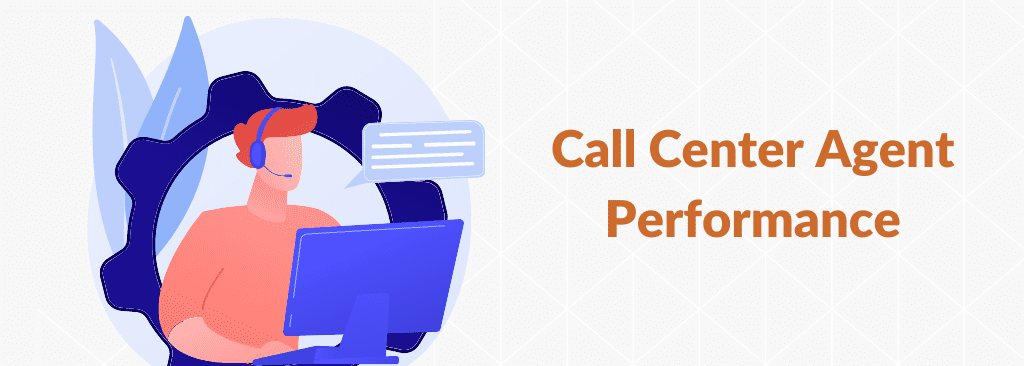Top Trends To Improve the Call Center Agent Performance?
Call centers are notorious for high staff turnover rates. The agents are at the bottom of the pyramid – their work environment is highly stressful, with high call volumes and frustrated customers.
Despite this, they are likely the face of the organization they represent with nothing in their control. They are expected to know everything you offer, they get paid the least, and their work is policed the most.
Major Challenges Faced by Call Center Agents.
Call center agent performance is affected by three important challenges that prevent them from delivering their best.
1. Complex Technology
- The agents access different systems and information sources, giving different answers
- The agents hop from one application or window to another to find the needed answer
- The agents find it difficult to keep up with all the new information and changes
The complications in using technology sometimes stop the agents from listening to their customers, which is key to providing a customer experience.
2. Performance Pressure
- Call center agents’ performance is affected by demands like keeping the Average Handle Time (AHT) to the minimum
- Due to AHT, agents prioritize closing the customer query over resolving the customer issue
This stressful environment is a legacy trait of call centers, drastically affecting the call center agent’s performance.
3. Policy Decisions
- Policy decisions are made from the top and driven down. The ones at the top have no clue about what the agents go through daily. This affects the call center agent’s performance
- To stick to the policy, agents don’t do the right thing by the customer. In many instances, agents know the answers they’re giving isn’t the one the customer is looking for.
Now that we know the problems, how do we go about arresting them?
5 Trends to Improve Call Center Agent Performance
Here are the 5 ways for improving agent performance in the call center
1. Self-Service Options
Identify the commonly asked queries by your customers by going over all your call records and email requests.
Once you identify the queries, automate them through FAQs and knowledge bases that customers access themselves.
Promote the availability of FAQs and knowledge bases to all your customers regularly so that they are aware of their availability.
This would free up agents’ time, allowing them to focus on complex queries. In turn, this would enhance the call center agent’s performance.
2. Automate IVR Intelligently
You cannot be directing customer queries randomly to agents in your call center. Segment your IVR to automatically distribute your calls based on the customer’s needs.
You can route your calls based on skills, location, languages, and call origins. This would ensure that most queries get resolved at the first instance, improving the call center agent’s performance.
3. Train, Train, and Train
I am sure as a customer experience function, however mature you are, you would encounter at least 4 to 6 new use cases every week. Capture them diligently, and use them as a part of your continuous training.
A few things that would help your training tremendously are voice and text analytics; and call and screen recording solution. Please don’t do them to police your agents. Instead, do them to learn where you go wrong and incorporate them as a part of your training.
Make data-driven changes to your training and keep them going consistently.
This would ensure a spike in your call center agent performance.
4. Provide Them With the Best Technology Tools
Integrate your cloud call center platform with the best-of-breed systems you use for customer interactions – CRM, helpdesk, sales, and ERP.
This would give your agents a single view of your customers, enabling them to effectively understand and resolve your customer issues.
This is considered the number one enabler of call center agent performance.
5. Measure, Monitor, and Re-Examine Your Metrics
Move away from policing metrics and focus on metrics like Customer Satisfaction (CSAT) scores, Net Promoter Score (NPS), Customer Effort Score (CES), Customer Health Score (CHS), and First Contact Resolution (FCR).
These metrics would allow you to grow as a customer experience function, which in turn would help improve the call center agent’s performance metrics.
Discover how ClearTouch’s advanced agent performance analytics can transform your call center operations.
Besides these, create a happy environment where your agent feels valued.
When was the last time you ever sought feedback from your agents on what your customers expect?
They are the front line of customer service, and they would see opportunities invisible to people who don’t have their feet on the ground.
Your customer service agent’s experience sets the tone for your customer experiences. Seek their feedback positively, and try incorporating the suggestions as a part of your customer experience process.
Keep your agents updated about your organization’s goals and plans for the future. Let them be an inclusive part of your goals and plans.
When your agents feel that they have a voice in the customer experience operations, they will feel empowered, improving their performance tremendously.
